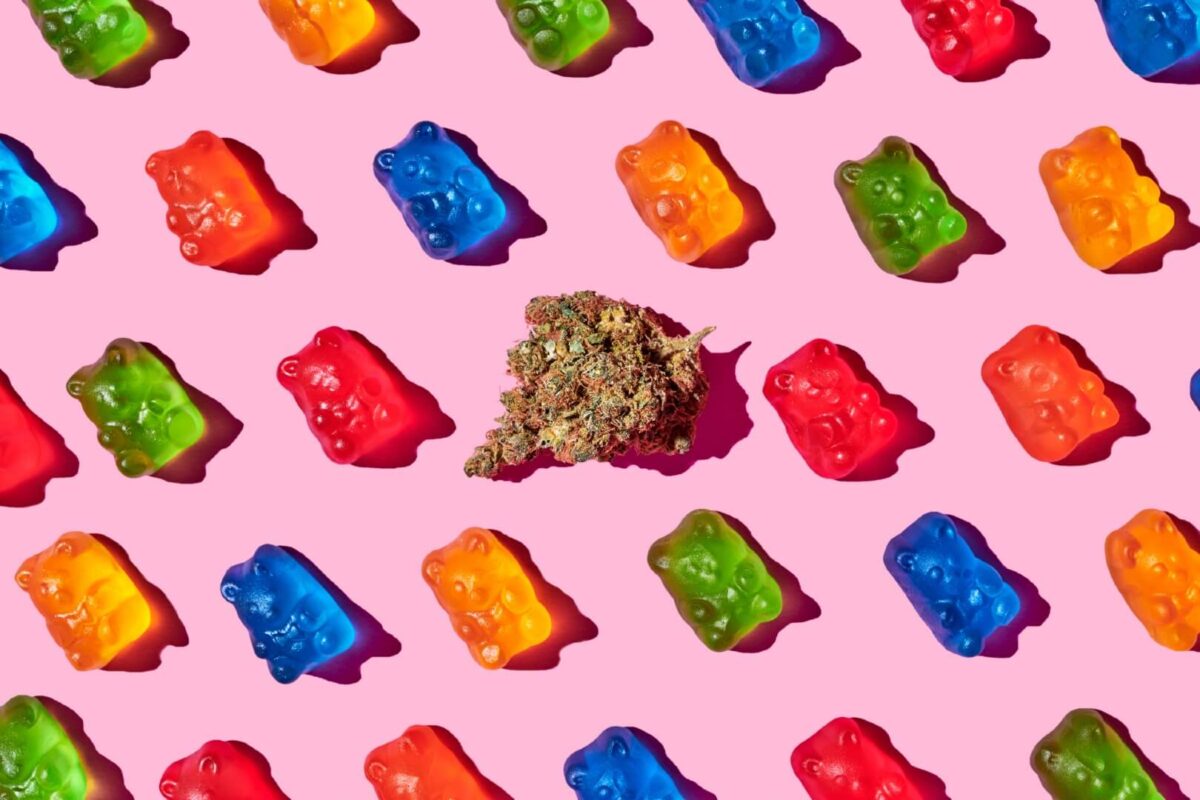POLITICS
Minnesota “Accidentally” Legalized Edibles
What does this new law mean?

Cannabis advocates in Minnesota, both activists and politicians, have been working tirelessly for decades to legalize weed in the Land of 10,000 Lakes. Recently, they were able to notch up a win. Minnesota’s Democratic governor just signed a bill into law allowing the sale of edibles containing 5mg or less of hemp-derived THC. You heard that right. Both THC edibles and infused beverages are now legal for sale in Minnesota. And, as an added twist, it was done on “accident.”
So, this raises some questions. Namely, how did Minnesota’s state legislature, or any legislature “accidentally” legalize edibles? What does that mean for The North Star State’s weed, hockey, and lake-loving residents? And is there any chance of that happening in other states?
Minnesota and Cannabis Legalization
Minnesota has been a “Blue” state (the only state not to vote for Reagan in 1984) and a cannabis-loving state for a long time. Over half of all registered voters in Minnesota support cannabis legalization and medical cannabis laws have been on the books since 2014. However, there’s been a lot of pushback from the more rural, conservative voters, and the reliably Republican Senate majority. Before March of this year, Minnesota’s medical laws only allowed for THC in pills, oil, or tincture. Now, medical patients can now purchase flower as well. Possession of one and a half ounces of marijuana has been decriminalized, meaning at most you’ll face a misdemeanor charge and a small fine. Possession above that amount, or any sale of cannabis, is a felony punishable by jail time.

Minnesotans have been pushing for cannabis legalization for decades. Photo Credit: Shutterstock
But, in the true Midwestern spirit, Minnesotan cannabis advocates haven’t stopped trying to push sensible legalization forward. In 2021, a bill to legalize the sale of recreational cannabis and the possession of up to 2 ounces of marijuana in public, as well as 10 plants and 8 plants in their private residence was put forth. It also included robust language to address social and racial equity issues caused by racist police practices and the justice system as a whole. While the bill passed the Democrat-controlled State House, it was blockaded yet again by the Republican-controlled State Senate.
Perhaps due to the lessons learned, some Democratic house members decided on a more round-about way to pass laws, involving delta-8 regulation.
Closing the Delta-8 Loophole
Hemp and hemp-derived products like CBD were made federally legal back in 2018. As long as any hemp-derived product contains less than .03% THC, it can be sold anywhere from health food stores to gas stations. In the past few years, companies have taken advantage of this law by manufacturing products containing hemp-derived delta-8 THC.
Delta-8 is considered by many to be “weed lite.” It has some of the same relaxing and intoxicating effects associated with delta-9 THC (the main psychoactive cannabinoid we’re all familiar with) but isn’t as potent. Such products have existed in a kind of legal gray area, because delta-8 is derived from hemp and does not contain the delta-9 THC molecule.

The legality of delta-8 products is a bit of a gray area, and these products have become popular in many areas of the United States.
Photo Credit: Shutterstock
While not as widely available as CBD products, they can still be purchased outside of dispensaries in hemp shops, head shops, or gas stations. Because of its intoxicating effects, some legislators want delta-8 products to be more closely regulated and taxed. In the latest legislative session, the Minnesota state senate put forward a bill to close this loophole and regulate delta-8 THC products more closely.
“Hemp-Derived” THC is THC
What often gets lost in the discussion about hemp-derived products, like CBD and delta-8, is that hemp and cannabis are the same plant. Hemp plants are cannabis plants bred to naturally produce potency below the legal limit of .03% delta-9 THC. It is only the level of THC production that distinguishes them to be given the status of “hemp.” Traditional cannabis plants used for recreational and medical marijuana ranges in potency anywhere from 5%-30% THC.

While some people think hemp and cannabis are two separate plants, that’s not the case.
Photo Credit: Shutterstock
However, the .03% of THC that grows on a hemp plant is the same THC as the 5-30% THC that grows on hemp plants. If you extract that small amount of THC and place it next to THC from a standard cannabis plant, the results are indistinguishable. The only difference is that the small amount pulled from a hemp plant can be designated as “hemp-derived THC.” It’s the same delta-9 molecule, even if it’s “hemp derived,” but this fact isn’t widely understood by most politicians.
This is how the weed-loving citizens of Minnesota got treated to a happy “accident.”
Minnesota Legalizes Edibles
Authored by Democratic Rep. Heather Ellison, House File 3595 containing the language legalizing hemp-derived THC edibles and beverages was incorporated into HF 4065. This large health policy and finance bill would be voted on by the Senate’s Human Services Reform Finance and Policy Committee. The contents of HF 3595 were not publicly discussed by its authors. It easily passed the House and moved onto the Senate, where the Republican members of the committee didn’t seem to look at it too closely.
While not admitting that they intentionally kept what was in the bill on the down low, House Majority Leader Ryan Winkler has said “Sometimes legislation benefits from a lot of publicity, sometimes legislation benefits from the ability to do the work more quietly.”
According to the Star Tribune, Republican state senator Jim Abeler, the chair of the Human Services Reform Finance and Policy Committee that passed the bill onto the governor, did not realize the law’s actual effects. He believed that it would only regulate delta-8 THC products. “I thought we were doing a technical fix, and it winded up having a broader impact than I expected,” he said in what can be considered an understatement. While he would like to roll this new law back, it’s most likely to stay on the books thanks to a Democrat-controlled State House and a Democratic Governor.
The Wrap Up
So can any marijuana-loving resident of Minnesota who’s 21 and over just walk into a participating shop as of Friday, July 8th and buy a 50mg pack of 5mg THC edibles or a 5mg THC infused beverage? Yes. Yes, they can. And it’s tax free.

Minnesota residents can now legally buy cannabis beverages and edibles in up to 5mg servings, and up to 50mg per package.
Photo Credit: Shutterstock
However, these new edibles will have to meet the state’s new regulatory requirements. The packages will need to be child-proof, and they’ll need a scannable QR code that links to ingredients and testing information.
As strange as it may sound, THC edibles are now legally sold in Minnesota thanks to some sly work by some (dare we say heroic?) legislators. Could this be a model for other states looking to pass cannabis legalization through a politically divided congress? As Minnesota’s legislators proved, it never hurts to try.
Frequently Asked Questions
Where Can I Buy Minnesota Edibles?
Shops selling hemp-derived products like CBD are your best bet, since the edibles in Minnesota contain hemp-derived THC. However, more shops will likely start selling soon since it’s now legal and does not require taxation or a license to sell.
Did Minnesota Legalize Edibles?
Yes. Thanks to some top quality work by Minnesota state Democrats and confusion on the part of their Republican colleagues, a law allowing the sale of hemp-derived THC edibles containing 5mg of THC was signed by the governor.
What Happens if you get Caught with Edibles in Minnesota?
If they are legally purchased, hemp-derived THC edibles, nothing will happen. These are now legal across the state. If you’re caught with any other types of edibles, it will be at maximum a misdemeanor charge and fine if the edibles contain less than 1.5 ounces of THC. Anything above that and you may be facing a felony charge.
